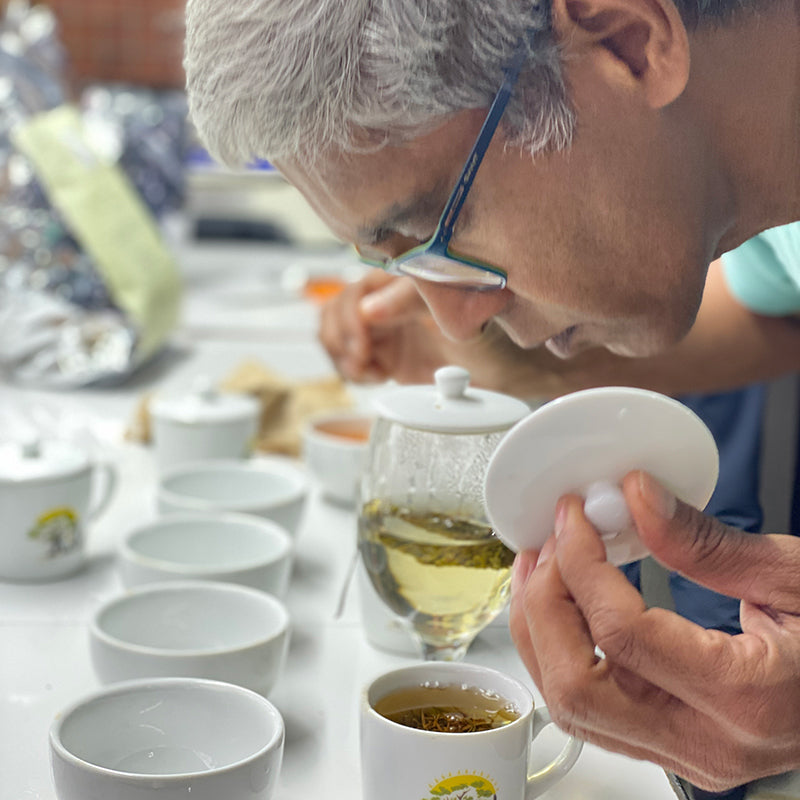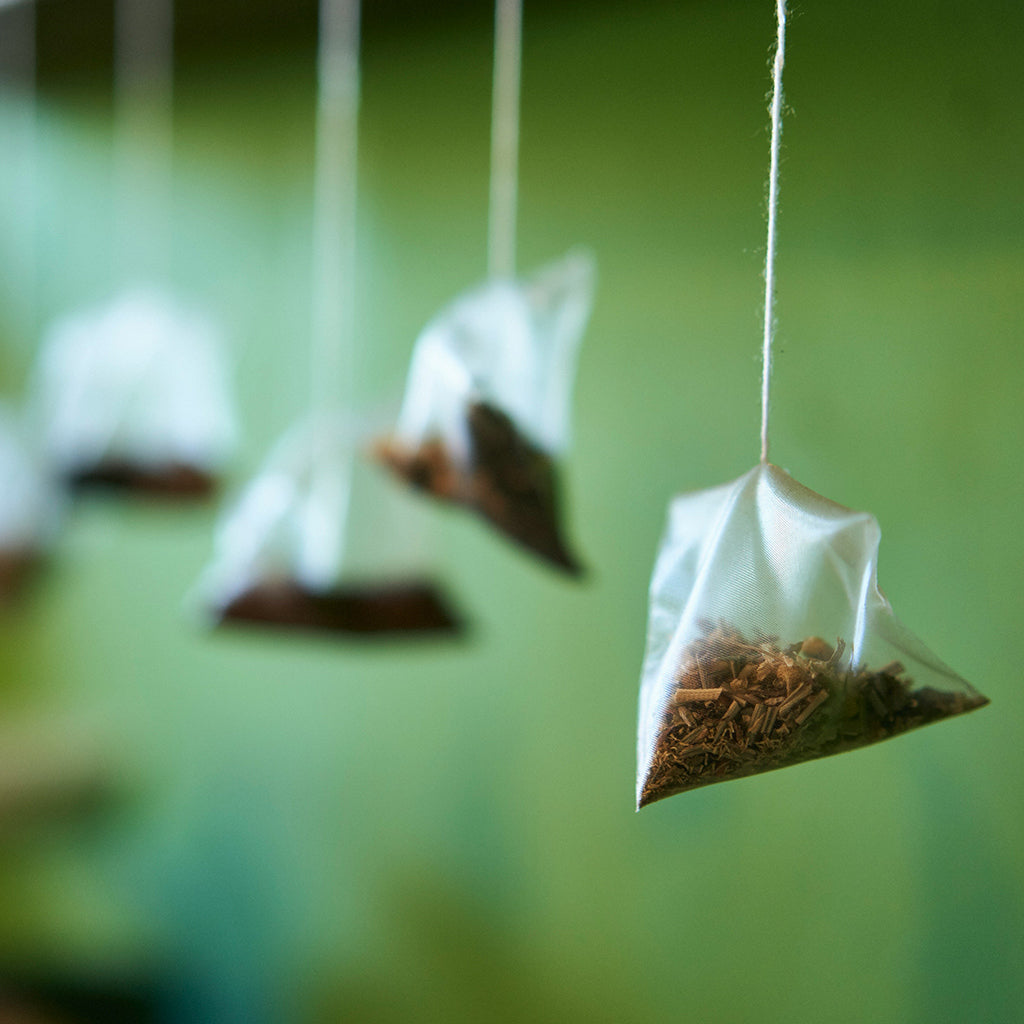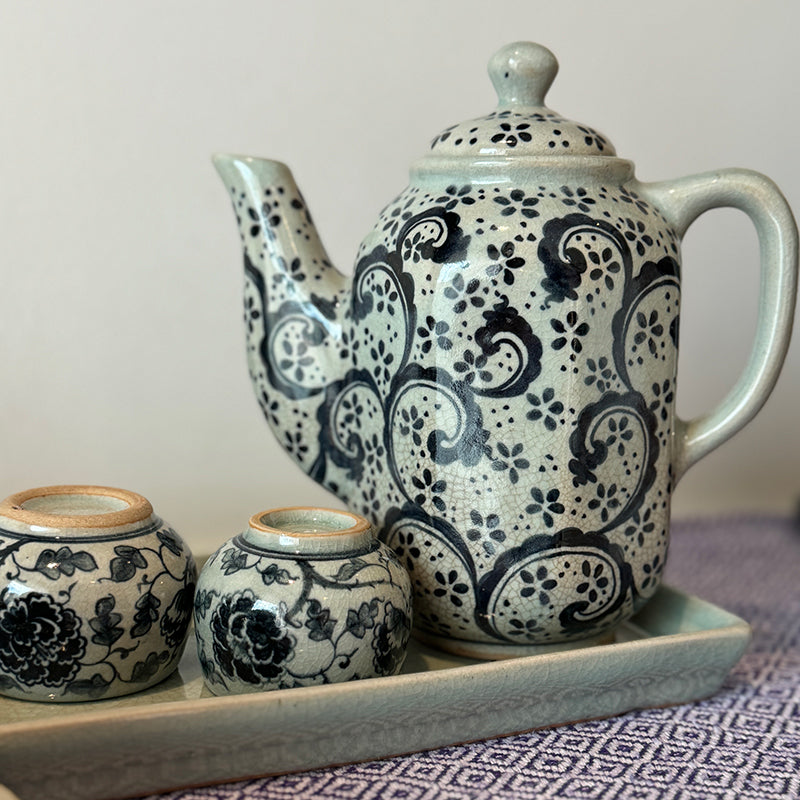Into the jungle at Forest Hill Tea Estate
For over 130 years, Tea Trees found at the foot of Adams Peak in the Sabaragamuwa Province of Sri Lanka have grown wild. To the casual observer, they appear as just another tree. A wonderful example of nature blossoming when untouched by mankind. The earth there is rich and contains all the nutrients required to sustain growth. The tropical rainforest climate keeps the temperatures up and the rain coming down.
It’s a humid place and the trees have thrived, part of a wonderful natural environment that also sustains an abundance of wildlife. This is where elephants and leopards once roamed. With each passing year the trees have grown in height and in history.
That history is compelling. For the trees of Forest Hill are from an abandoned tea estate. What is now wild was once a thriving enterprise, part of the popular Ceylon tea industry under British Colonial Rule.
Forest Hill Wild Tea Plantation, Sri Lanka
Called ‘Warnagala’, the tea estate was started by Scottish planters but abandoned over 130 years ago for reasons unknown. The history of tea in Sri Lanka, then called Ceylon, is as historically tasty as is the warming drink.
It’s a story entwined with myth, legend and tales of deceit and exploitation by the East India Company.
Whilst we cannot be sure what was behind the decision to abandon the tea estate over a century ago, the expectation is it’s a riveting story of good and bad. A tale suited to a long afternoon, the comforting shade of a tree and refreshment from tea that quite literally steeped in history.
What we can also be sure of is the significant change that raged around the estate. As the tea trees grew, the world saw war, revolution and the unprecedented technological change.
Yet the tea trees at Forest Hill will see little of mankind's technological advance. Led by Buddhika Dissanayake, a local tea maker, the abandoned trees are treated with the respect they deserve. This means no mechanisation.

It’s an approach that preserves the taste and character of the tea they are now once again producing. An intangible something, there is an intrigue and beguiling character to the taste. You can’t quite put your finger on it but it’s there.
At an elevation of 2900 feet, the trees have grown to over 40 feet high. No doubt partly in competition for sunlight from the surrounding forest and partly a result of nature’s gift of location. To get to the leaves requires climbing the trees, to a height of 30 feet and above.
They are plucked by hand and then carted out of the jungle by foot. It may not be the quickest way to secure a harvest but the focus at Forest Hill is not on speed. It’s firmly on quality and about producing a unique small batch tea. Forest Hill is home to rare 'Pink Green Tea'.
Ladies crafting the specialty teas by hand
Since they started producing their tea in late 2018, Forest Hill has cultivated a reputation as the pioneers of ‘Wild Ceylon Tea’. It possesses a unique earthy character which is taken from the nutrients absorbed from the tap root in the deep layers of rich soil, in the unspoiled environment where the trees grow.

Great care is taken to only harvest small amounts of leaves from these special trees. Indeed, across all the teas produced by Forest Hill, they have a maximum capacity of 250kg of tea per month.
Brewing up some 'Wilderness Tea'
This is tea destined to be savoured and sipped with pleasure rather than hurriedly drunk between meetings. Each cup is an experience, something to nourish the mind and soul, as much as the body as it quenches your thirst.
Whilst they are not certified organic (which takes time and this is a considerably new operation), Forest Hill adheres to organic principles. More so, they are committed to actively preserving and increasing the biodiversity of the region.
So it’s not as much about taking from nature by plucking the tea leaves, rather it’s a partnership with nature, one in which they give back and understand success is based on mutual benefit for man and land.
Among the other teas from Forest Hill include ‘Tea Rod’, a 100% Natural tea Bag. It may even be the most sophisticated tea bag in the world. Each ‘Tea Rod’ consists of two high quality leaves and buds, entwined together to form a ‘rod’ which then diffuses and flavours hot water (100℃ for 5 minutes).
The unique construction means each part of the rod contains slightly different flavour notes. It is different and quintessentially Forest Hill, showcasing tea craftsmanship as an art and performance piece.
The charm of Forest Hill extends beyond the diffused flavour of the artisan tea. That’s because the operation is infused with goodness to its core. As a company, it was started with a specific mission to maximise local income generation and promote environmental stewardship.
Local Sinhalese villagers are employed and Forest Hill invests in their future by supporting their education and that of their children. There is also a commitment to making positive change to the infrastructure, improving the local homes and helping provide a more stable base for sustainable prosperity in the village.
This includes sharing a percentage of the profits with workers. In a typically low-paid environment, Forest Hill pays both workers and local suppliers, who ‘hold hands’ with Forest Hill, higher than normal rates.

Forest Hill Landscape
It’s a model Forest Hill hopes will be replicated. Their dream is for other smallholders to produce and sell their own value-added products. In an impoverished region with little infrastructure, their partnership with nature and the local villagers is so very warming to the soul.
Like that intangible something to their wild ceylon tea that comes from knowing the story behind the tea trees, simply knowing the company is community adds something to the drinking experience.
If the tea is laced with the flavour from Mother Nature’s footprint below Adam’s Peak, it is also flavoured with the smiles from the pickers that care for the environment and are cared for by Forest Hill, the company.
Each cup of small batch artisanal tea from Forest Hill is an experience. This tea has been brewing for 130 years so there is no need to rush the finale. Take your time, savour the flavour and close your eyes. It is wild ceylon tea at it’s very finest and a rare taste you cannot find anywhere else.




